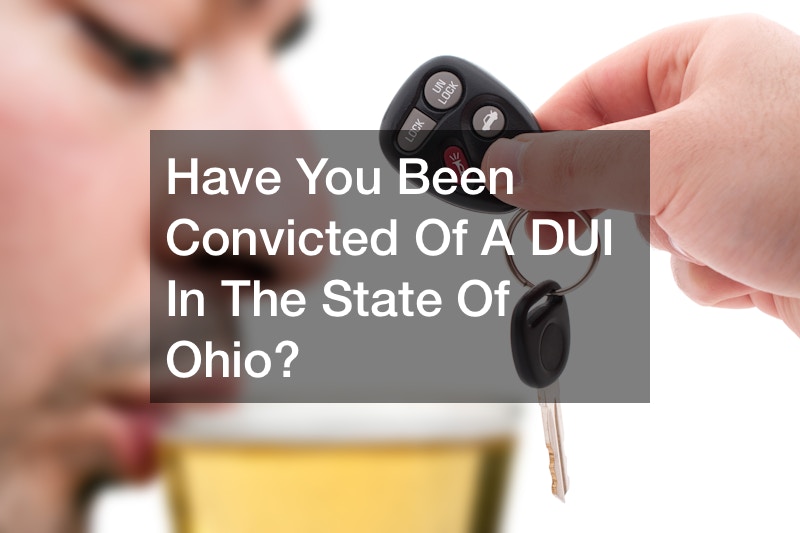
There’s a reason why you can’t drink and drive. You have to think of the safety of everyone on the road, but if you get arrested after having some liquor and getting behind the wheel, you’ll need a DUI lawyer. These offenses will most likely be misdemeanors unless you’ve done something worse, and that can get tricky.

That’s why it’s best to follow the law and avoid getting into trouble. Some people wonder things such as, “If I get a DUI can I still drive?” The answer will depend on what happens in your case. You can ask your attorney about it. However, “can you still drive if you get a DUI?” shouldn’t be your first question after an arrest.
Can I still drive after a DUI? is one of the most popular questions, however, and your attorney will guide you through the consequences. It’s very likely that you’ll be able to drive again. You might have some points on your license, and your insurance premium could go up, but that’s the least of your worries. If you repeat these offenses, the courts won’t be lenient, and they’ll charge you with a felony. At some point, you could lose your driving privilege.
Let’s find out more about how a DUI turns into a felony and answer the question: Can you drive if you have a DUI?
Over 1.1 million drivers in Ohio have one or more convictions for driving while impaired. That amounts to one in every seven licensed drivers in Ohio. Over the past few decades, states have become less and less tolerant of driving while impaired, be it by drugs or alcohol or a combination of the two. In most cases, a DWI, also known as a DUI or, in Ohio, and OVI (“Operating a Vehicle while Impaired”), is considered a misdemeanor offense. Under certain circumstances, however, a DUI charge may become a felony crime. While it’s always a good idea to consult a DUI attorney, finding a good federal defense attorney is particularly important in the case of felonies.
Felony vs Misdemeanor: Knowing the difference
A misdemeanor crime is a lesser offense than a felony crime. That’s not to say it isn’t still a serious crime: even with a misdemeanor DUI charge, you can face up to six months in jail, a fine of up to $1,000, and license suspension of up to three years in Ohio. For a felony offense, however, those consequences are often higher. For instance instead of six months in jail, you may face one or more years. A federal defense attorney can help limit the consequences you face for felony offenses.
The difference between a felony and a misdemeanor depends on the laws of the state in which the crime as committed and the circumstances of the crime. A felony DUI in one state may be only a misdemeanor in another, but this means the reverse is also true: a misdemeanor in one state is as felony in another. Despite this variation, there are a few common factors that will almost always result in a DUI becoming a felony as opposed to a misdemeanor.

When a DUI is a felony offense
High blood alcohol levels
In Ohio, the BAC limit for non-commercial drivers over the age of 21 is .08%. (Drivers under 21 have a BAC limit of .02%, while commercial drivers over 21 years of age are subject to a .04% BAC limit.) This means that at a minimum, a legal, non-commercial driver must have at least a blood alcohol concentration of .08% to be charged with a misdemeanor DUI. If your BAC is significantly above this amount, however, you may face a felony charge instead.
Under DUI laws in Ohio, however, it is possible to contest the results of a BAC test. You can work with your federal defense attorney to determine if this is possible in your case.
An accident that resulted in injury
If you were in an accident while driving while intoxicated and injury or harm to another party resulted, you may face a felony charge. Regardless of if the injured party was a passenger in your car or not, anytime a DUI results in injury, it can become a felony offense.
DUI with a minor in the car
Whenever children are involved in a crime, the severity of the offense is elevated. In the case of DUIs, this is no different for most states. In general, having a minor under the age of 16 in the car when you are charged with a DUI will result in a felony charge according to DUI laws in most states.
Previous offenses
In Ohio, even a first DUI offense can add six points to your driving record. If you’ve faced previous DUI convictions, however, the consequences of another could be even greater. Again, the various DUI laws by state differ. It may be the case that in one state, having three DUI convictions within the previous five years will result in a fourth charge becoming a felony offense. In other states, having even one previous offense within the past decade could be enough to subject you to felony charges.
DUI with a suspended license
Regardless of other aggravating factors, if you’re charged of a DUI when your license is suspended, you’ll likely face felony charges.
When to hire a federal defense attorney
If any of the above or other circumstances have resulted in your DUI becoming a felony, contact a federal defense attorney immediately. A federal defense attorney in your state can analyze the videos, find witnesses, and challenge chemical tests to help your case.

